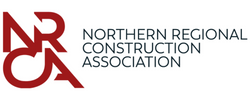Product Overview
More and more frequently private sector companies and government organizations are releasing Requests for Proposals (RFP’s) as part of their procurement process and moving away from the traditional bid process. Construction companies will win or lose contracts based on their responses to these RFP’s. Responding to a Request for Proposal (RFP) successfully requires knowledge, understanding and a proposed solution of the subject, while convincing the potential owner that your company is the best suited to build their project. Your response must not just be compliant, it must be compelling as well!
Using a case study of an actual RPF and through the step- by step development of the RFP response to this case study participants will:
- Understand the differences between a Request for Quotation (RFQ) and the typical prequalification in the bid process and how to respond to that RFQ.
- Learn to identify where RFP opportunities lie in the public and private sectors.
- Learn to analyze your companies’ SWOT (Strengths, Weaknesses, Opportunity and Threats) and how to leverage these for the RFP response.
- Learn how to analyze the RFP to:
- Understand the owner’s requirements both for the RFP response and the project
- Understand the RFP components and deliverables
- Understand how your company can best suit the solution by performing a GO or NO GO analysis
- Create a successful strategy for developing a winning response and creating a win theme.
- Understand the importance of knowing the competition.
- Learn to prepare your written response effectively while following the guidelines set out in the RFP, including the executive summary, resumes, project selection, project appreciation, lessons learned and why your company is the best choice.
- Discover practical tips for writing your response and the difference between mandatory and weighted criteria.
- Discover strategies in asking RFI’s – Request for Information – sometimes it is best not to ask the question.
- Learn how to complete returnable schedules and understand what the schedules are asking for.
- Learn how to effectively craft your RFP responses.
Exclusive to this workshop is a comprehensive practical manual that is used as a reference and guide throughout the sessions. The manual is based on accumulated knowledge gathered over 40 years in the construction industry. It is a valuable and effective tool that contains not only practical how-to’s, checklists and templates but will also be a foundation for new processes and procedures back in the office or on the jobsite.
Industry Credits
This course is worth 2 Gold Seal credits and 10.5 Informal Continuing Professional Development (CPD) credits as approved by BC Housing.
Who should attend:
General contractors, subcontractors, architects, designers, engineers, consultants, Bid/Proposal Managers and allied professionals in the construction industry.
Course Format
- Live, Online, Instructor-led training. This is a highly interactive course facilitated by the instructor on a video platform.
- You will be expected to have your webcam on during the whole class and participate in break-out rooms, small-group discussions, and other activities with your instructor and classmates during the course.
- Course access information will be provided to you in advance of the training by your instructor
- Full attendance and participation in all sessions is mandatory for course completion. If a student misses a class session, we are unable to transfer registration or provide a partial refund of the registration fees.
Course Requirements (Technology & Participation)
This course requires full face-to-face interaction and participation from both the instructor and students. In order to attend, you’ll must make sure you have the following:
- Computer or laptop with webcam (webcams are mandatory): This course will involve 100% on-screen interaction with your instructor and classmates, reading/viewing on-screen content like slides or videos, and interacting via typing with questions or responses. For this reason, you must have a webcam and use a full computer/laptop, and we do not permit students to attend using a tablet or cell phone.
- A quiet space with minimal distractions: Please plan to be fully engaged in the class, and clear your work schedule just as you would for attendance in an in-class program.
Refunds or Transfers:
- Five (5) or more business days before the course start date: Full refund of registration fees or can be transfers to a different course date.
- Less than five (5) business days before the course start date and course no-shows: No refunds or transfers to future course dates.
- For a complete document on the NRCA Education Policies, click here.
Other Policies
- Substitution of another member of your company/team is permitted up to the course start date for no additional fee.
- Unless otherwise stated, every person able to see, hear, and observe the virtual course sessions must be a paid participant. Non-compliance of this requirement will result in removal from the course. Refunds will not be issued to students who are removed from the course for non-compliance of this requirement.
- If the NRCA has to postpone or cancel courses due to insufficient enrolment, NRCA will refund the registration fee or, if possible, the attendee may choose to move to an identical session in the future.








